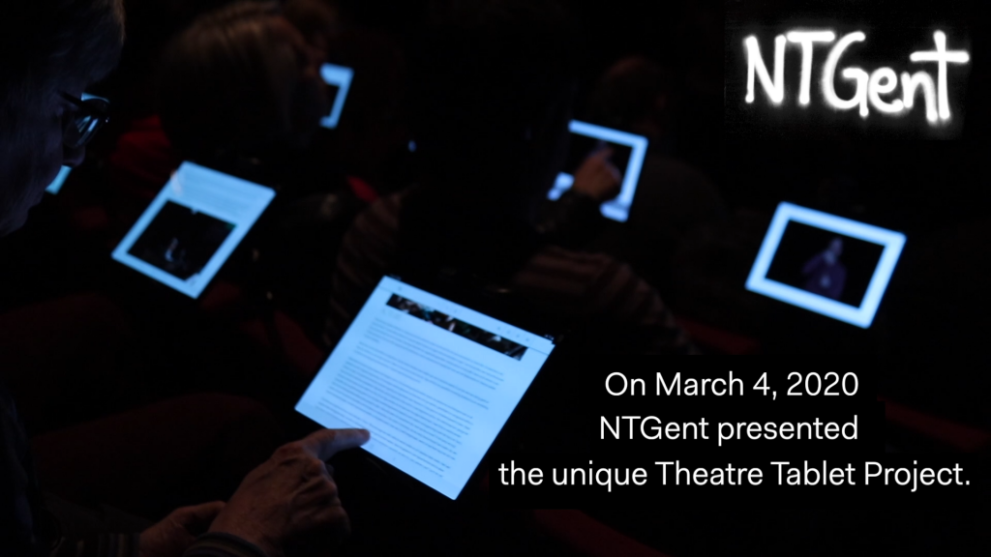
Since the early ’90s the Department of Applied Linguistics/Translators & Interpreters of the University of Antwerp (called HIVT at that time) has been specializing in audiovisual translation. About 25 years later, OPEN, an expertise centre for accessible media and culture was founded. OPEN aims to raise the visibility of accessibility in all its facets, to contribute to the realisation of an inclusive society, to be a point of contact between all stakeholders, focussing on innovation, professionalisation and knowledge exchange in this domain.
Besides organising activities like workshops and conferences, we conduct research projects involving also our students.
One of the ongoing projects, started last year in collaboration with the NTGhent theatre company, a software developer & surtitling company and three of our master students. The performances of COMPASSIE, directed by Milo Rau and performed on 4 and 5 March 2020 in Ghent, became, accessible for people with vision loss and for people who are D/deaf or hard of hearing, thanks to the translation into Flemisch sign language (VGT), the provision of surtitles and audio description
The three master students created the audio description and the subtitles for the deaf and the hard of hearing (SDH) that were uploaded on a “theatre tablet” together with Flemish sign language and synchronized with the surtitles on the scene. The students also investigated the impact of this technology on the creation process, the final quality and the user experience.
As far as the methodology is concerned, they started with a profound analysis of the context (the play and its director), the source text (and all its semiotic meanings) and the audio description, that needed to be pre-recorded which is very unusual for theatre AD. Amongst the challenges they faced, we can mention the selection of the information, the subjectivity, the synchronization of the different channels (AD, SDH, VGT and surtitles on scene) and the fact that theatre typically is live and by consequence, no two performances are the same.
The conclusions of this pilot project will be taken into account for the future “theatre tablet projects” we are planning.
This kind of collaborative projects, where students touch upon the aim of translation in the very broad sense and see the social impact of what they are learning, is highly stimulating and of utmost importance for our students.
Details
- Publication date
- 15 July 2021
- Language
- Dutch
- English
- French
- EMT Category
- Pedagogical initiatives
